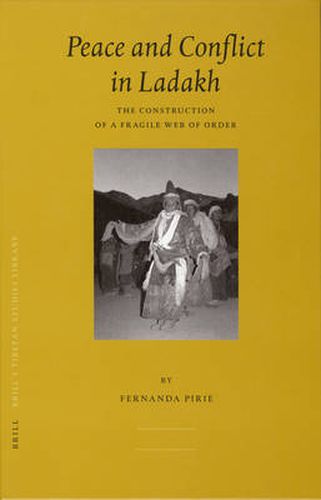Readings Newsletter
Become a Readings Member to make your shopping experience even easier.
Sign in or sign up for free!
You’re not far away from qualifying for FREE standard shipping within Australia
You’ve qualified for FREE standard shipping within Australia
The cart is loading…






Long caught between powerful neighbours, Ladakh is now a border region in the vast Indian nation state. In this detailed, anthropological study Fernanda Pirie traces the ways order has been created by, but also despite and in defiance of, the powerful external forces of religion, war, politics and wealth.
Gradually a clear analysis unfolds of the subtle dynamics that have long characterised relations between local communities and centres of power and which can successfully be applied to the wider region. This exemplary study of conflict resolution brings to light the means by which small communities, both rural and urban, negotiate peace amidst the heterogeneous forces of modernity, while at the same time critically re-examining theories that over-emphasize the explanatory power of Buddhism.
This rich ethnographic account of local practices fills a conspicuous gap in secondary literature on Tibetan law.
$9.00 standard shipping within Australia
FREE standard shipping within Australia for orders over $100.00
Express & International shipping calculated at checkout
Long caught between powerful neighbours, Ladakh is now a border region in the vast Indian nation state. In this detailed, anthropological study Fernanda Pirie traces the ways order has been created by, but also despite and in defiance of, the powerful external forces of religion, war, politics and wealth.
Gradually a clear analysis unfolds of the subtle dynamics that have long characterised relations between local communities and centres of power and which can successfully be applied to the wider region. This exemplary study of conflict resolution brings to light the means by which small communities, both rural and urban, negotiate peace amidst the heterogeneous forces of modernity, while at the same time critically re-examining theories that over-emphasize the explanatory power of Buddhism.
This rich ethnographic account of local practices fills a conspicuous gap in secondary literature on Tibetan law.